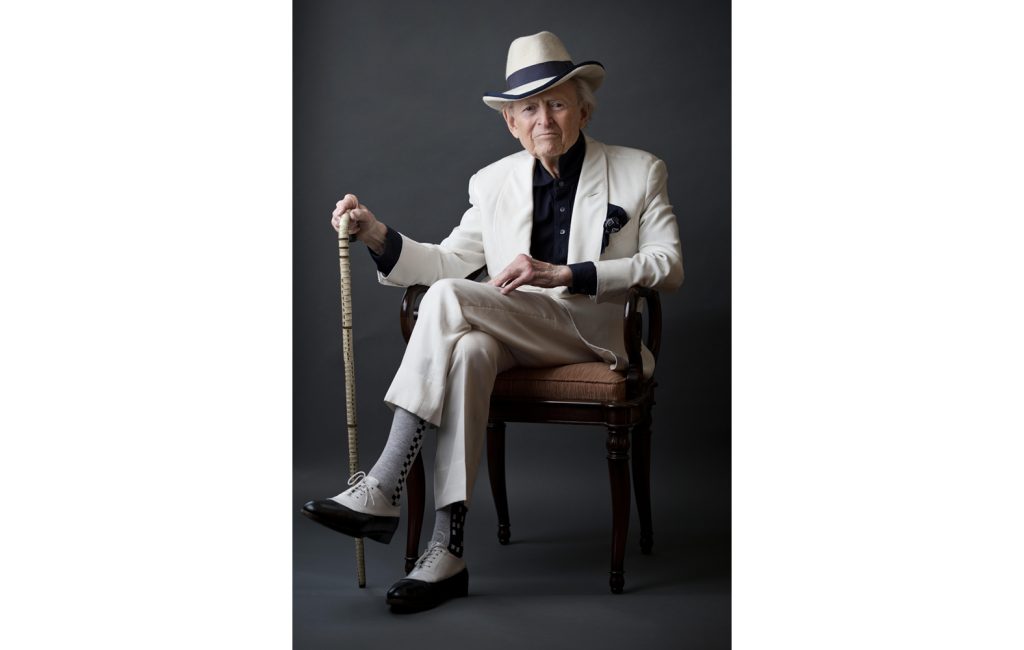A tip of the hat to Tom Wolfe, in the world but never of it
The man in the white suit is dead.
American writer Tom Wolfe has passed away, but he leaves behind a body of work that should be the envy of anyone who ever wanted to put pen to paper.
If Tom Wolfe wasn’t as “relevant” in the past couple of decades as he was prior to them, this is the world’s fault, and Wolfe would have chuckled at the mere thought of trying to be relevant in the first place.
Wolfe was an American original. Born in the South, he made his living primarily in New York, but he was never totally at home in either setting. He remained an outsider by choice.
Even his decision on the clothes he wore became a kind of punctuation mark for his aim not to be swallowed up by any one cultural environment he immersed himself in. Who in their right mind wears white after Labor Day … other than Tom Wolfe?
Remaining an outsider is hard to do for anyone, especially a writer.
Wolfe’s contemporaries, like Truman Capote, Hunter S. Thompson and Norman Mailer, may have appeared to those not living in New York or Los Angeles as outsiders, but for anyone in the “know,” they were all various versions of the ultimate club members — Capote as the gadfly of the social elite, until he wrote about their secrets and was kicked out of the club; Thompson became the bad boy of the baby boomers and that generation’s high priest of excess; and Mailer gladly assumed the mantle of oracle for the political left.
Wolfe was none of that. He was not a joiner in any sense, and that included his personal and spiritual life. He was not a believer, but he didn’t wear his disbelief like a badge of honor, as so many prominent atheists do, but rather, stated it honestly and as a matter of fact.
He was more uncomfortable with professional atheists than believers, and was convinced they required more leaps of faith to hold on to their tenants than any deist he knew.
His writing, like that of any great writer, was unique and not derivative. You don’t have to see the title page to know you are reading a Tom Wolfe novel, a Tom Wolfe essay or a Tom Wolfe grocery list. There are the eccentric uses of punctuation and the turn of a phrase in a way any writer reading his stuff should envy.
But the thing that separated Wolfe from his contemporaries past, present and future was his ability to remain outside the worlds he wrote about.
He could live among Ken Kessey and hippies and the drug culture and not be a part of them. He was as equally an outsider in a Leonard Bernstein salon as in a dive bar on an Air Force base in the Mojave Desert.
His ability to be part of the world but not of the world would have served him well in a conversion to the Catholic Church. Wolfe had many journeys in his life but sadly, that was not one of them.
Still, he believed in “tradition” in a very Catholic sense and, like the Church, used it as an anchor even when the popular culture demanded disposal of such “antiquated” concepts.
It may be rhetorical overreach to compare him to Mark Twain, but I will anyway — and it is more than just both men’s penchant for white suits.
Like Wolfe, Twain sustained an outsider’s point of view, whether he was writing about life on the Mississippi or ruminating on the seats of power. Both men were skeptics when it came to belief in the Almighty, but Wolfe did not share Twain’s disdain for human beings.
He was quick to explore human hubris, but it was always with a sense of affection, and even empathy, for his characters, both real ones who populated his nonfiction work and those who lived in his novels.
Wolfe’s healthy attribute of keeping the prevailing culture at bay is good advice for Catholics. The message of the cross and Jesus’ own words tell us to never fully expect to be comfortable in our settings, whether that is first-century Judea or 21st-century Los Angeles.
Wolfe was downright biblical in his belief in the good of creation, and man’s place in it, warts and all. Though he was unable to personally attribute that creation to an all-loving and all-merciful God, we can certainly entrust him to that Father.
“Requiescat in pace,” Mr. Wolfe.
Robert Brennan is a regular columnist for Angelus and the director of communications for the Salvation Army Southern California Division.
Interested in more? Subscribe to Angelus News to get daily articles sent to your inbox.

